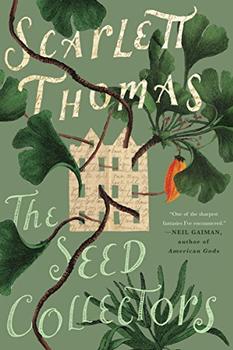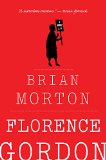Summary | Excerpt | Reading Guide | Reviews | Beyond the book | Read-Alikes | Genres & Themes | Author Bio

A striking debut novel of marriage, fidelity, sex, and morality, featuring a fascinating heroine who struggles to live a life with meaning.
For readers of Claire Messud and Mary Gaitskill comes a striking debut novel of marriage, fidelity, sex, and morality, featuring a fascinating heroine who struggles to live a life with meaning.
Hausfrau
haus·frau \haus-frau\ n 1: Origin: German.
Housewife, homemaker. 2: A married woman. 3: A novel by jill alexander essbaum
Anna was a good wife, mostly.
Anna Benz, an American in her late thirties, lives with her Swiss husband, Bruno - a banker - and their three young children in a postcard-perfect suburb of Zürich. Though she leads a comfortable, well-appointed life, Anna is falling apart inside. Adrift and increasingly unable to connect with the emotionally unavailable Bruno or even with her own thoughts and feelings, Anna tries to rouse herself with new experiences: German language classes, Jungian analysis, and a series of sexual affairs she enters with an ease that surprises even her.
But Anna can't easily extract herself from these affairs. When she wants to end them, she finds it's difficult. Tensions escalate, and her lies start to spin out of control. Having crossed a moral threshold, Anna will discover where a woman goes when there is no going back.
Intimate, intense, and written with the precision of a Swiss Army knife, Jill Alexander Essbaum's debut novel is an unforgettable story of marriage, fidelity, sex, morality, and most especially self. Navigating the lines between lust and love, guilt and shame, excuses and reasons, Anna Benz is an electrifying heroine whose passions and choices readers will debate with recognition and fury. Her story reveals, with honesty and great beauty, how we create ourselves and how we lose ourselves and the sometimes disastrous choices we make to find ourselves.
At times it's difficult to discern just why Anna is so desperately unhappy, why she finds her husband (who seems mostly harmless enough, just perhaps dull or disengaged, more than a little blind to his wife's unhappiness) so infuriating and unsatisfactory, why she actively shuts out others' overtures of genuine friendship and kindness. She is occasionally frustrating for that reason, but also fascinating to consider in her complexity and her thoroughly realistic conception of herself as a passive victim of circumstances...continued
Full Review
 (637 words)
(637 words)
(Reviewed by Norah Piehl).
Switzerland has four official languages, each primarily spoken in different regions of the country (please click map below). A portion of the West speaks primarily French; Italian dominates in some portions of the South; and Romansh, the closest living language resembling ancient Latin, works in a very small section of the southeast. A wide swath of the middle, including Zürich, where Hausfrau is set, speaks German. Making things more complicated, this region is diglossic, speaking two different variations of the language: standard (also known as High German) and Swiss German, also known as Mundart or Schweizerdütsch, which itself has a set of local dialects.

In Hausfrau, Anna takes courses in the ...

If you liked Hausfrau, try these:

by Scarlett Thomas
Published 2017
The Seed Collectors is a tale of inheritance, enlightenment, life, death, desire and family trees by a literary star in the UK.

by Brian Morton
Published 2015
A wise and entertaining novel about a woman who has lived life on her own terms for seventy-five defiant and determined years, only to find herself suddenly thrust to the center of her family's various catastrophes.